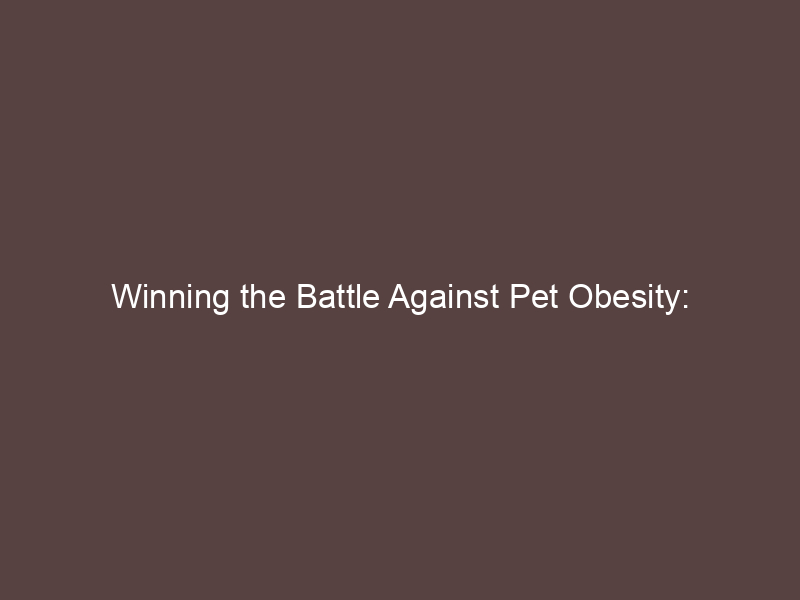Introduction to Cat Dental Care
Just like humans, cats also need proper dental care to maintain their overall health. In this article, we will discuss the importance of feline oral hygiene, common misconceptions about cat teeth cleaning, and the benefits of maintaining cat teeth health.
- Importance of Feline Oral Hygiene
- Common Misconceptions about Cat Teeth Cleaning
- Benefits of Maintaining Cat Teeth Health
Oral hygiene is crucial for your cat’s overall health. Poor oral hygiene can lead to various dental diseases like gingivitis and periodontitis, which can cause discomfort and pain to your feline friend. According to the American Veterinary Dental Society, more than 70% of cats show signs of oral disease by age three. Therefore, it’s essential to maintain your cat’s oral hygiene from an early age.
Many cat owners believe that cats clean their teeth by themselves while grooming. However, this is a common misconception. While cats do groom themselves, this does not effectively clean their teeth. Another misconception is that dry food cleans a cat’s teeth. While dry food can help to some extent, it does not remove all the plaque and tartar buildup. Therefore, regular teeth cleaning by a vet is necessary.
Maintaining your cat’s teeth health has numerous benefits. It can prevent dental diseases, which can lead to severe health issues like heart disease and kidney problems. It also helps to prevent bad breath, making your cuddle time with your cat more enjoyable. Furthermore, a healthy mouth can contribute to your cat’s overall well-being and longevity.
In the following sections, we will delve deeper into understanding cat dental diseases, provide some useful cat dental health tips, recommend some cat dental health products, and share some success stories of improved cat dental health. Stay tuned to learn more about the long-term benefits of cat dental care.
Understanding Cat Dental Diseases
Just like humans, our feline friends can also suffer from various dental diseases. It’s important to understand these conditions to ensure your cat’s oral health is in top shape. Let’s delve into some of the most common dental issues in cats.
Common Dental Issues in Cats
There are several dental diseases that commonly affect cats. Here are the top three:
- Gingivitis
- Periodontitis
- Cat Tooth Decay
Gingivitis is a condition that causes inflammation of the gums. It’s often the first stage of dental disease in cats. Symptoms include red, swollen gums and bad breath. If left untreated, it can progress to more serious conditions like periodontitis.
Periodontitis is a severe gum disease that can lead to tooth loss. It occurs when the inflammation of the gums spreads to the tissues and bones that support the teeth. Cats with periodontitis may have difficulty eating, show signs of discomfort, and even lose weight.
Also known as feline tooth resorption, cat tooth decay is a painful condition where the cat’s body starts to break down and absorb the tooth. This can lead to holes in the teeth and severe pain. It’s one of the most common reasons for tooth extraction in cats.
Understanding these common dental issues in cats is the first step towards ensuring your pet’s oral health. In the following sections, we will discuss how to prevent these conditions and maintain your cat’s dental health.
Prevention of Cat Dental Issues
Preventing dental issues in cats is just as important as treating them. Here are some key steps you can take to ensure your feline friend maintains a healthy mouth:
- Regular Check-ups
- Proper Diet
- Regular Teeth Cleaning
Just like humans, cats need regular dental check-ups. These visits to the vet can help identify potential problems early, before they become serious. A typical check-up might include a thorough examination of your cat’s mouth and a professional teeth cleaning. The vet may also provide advice on home care techniques to keep your cat’s teeth clean and healthy.
What your cat eats can have a big impact on their dental health. A diet that includes dry food can help keep your cat’s teeth clean by scraping away plaque. There are also special dental diets available that can help reduce the risk of dental disease. Always consult with your vet before making any changes to your cat’s diet.
Regular teeth cleaning is a crucial part of preventing dental issues in cats. This can be done at home using a cat-friendly toothpaste and a soft toothbrush. It’s best to start this routine when your cat is young, but it’s never too late to start. Remember, never use human toothpaste as it can be harmful to cats.
By following these steps, you can help prevent dental issues and ensure your cat maintains a healthy mouth. Remember, prevention is always better than cure, especially when it comes to your cat’s dental health.
Cat Dental Health Tips
Keeping your cat’s teeth clean is an essential part of their overall health. Here are some tips to help you establish an effective oral care routine for your cat.
Establishing a Cat Oral Care Routine
Creating a regular oral care routine for your cat can prevent dental diseases and ensure their teeth stay healthy. Here are three key steps to consider:
- Choosing the Right Toothpaste
- Proper Brushing Techniques
- Frequency of Teeth Cleaning
Not all toothpastes are suitable for cats. It’s important to choose a toothpaste specifically designed for feline use. These toothpastes are safe for cats to swallow and come in flavors that cats enjoy, like fish or chicken. Avoid using human toothpaste, as it contains ingredients that can be harmful to cats.
Brushing your cat’s teeth might seem challenging at first, but with patience and practice, it can become a routine task. Start by gently lifting your cat’s lips and brushing a few teeth at a time. Gradually increase the number of teeth you brush each time. Always use a soft-bristled toothbrush designed for cats and brush in a circular motion to effectively clean their teeth.
For optimal dental health, it’s recommended to brush your cat’s teeth daily. However, if this isn’t possible, aim for at least three times a week. Regular brushing can prevent plaque buildup and reduce the risk of dental diseases.
Remember, establishing a cat oral care routine might take some time, but it’s worth the effort. Your cat’s dental health is a crucial part of their overall well-being, and with these tips, you can help keep their teeth clean and healthy.
Professional Cat Teeth Cleaning
Just like humans, our feline friends also need professional dental care to maintain their overall health. This section will guide you on when to consider professional cleaning, what to expect during the procedure, and how to provide post-cleaning care.
- When to Consider Professional Cleaning
- What to Expect During the Procedure
- Post-Cleaning Care
While regular home cleaning is essential, it may not be enough to prevent certain dental issues. If your cat has bad breath, red or swollen gums, difficulty eating, or visible tartar on the teeth, it’s time to consider professional cleaning. Remember, prevention is better than cure. Regular check-ups with a veterinarian can help detect dental issues early and save your cat from discomfort and pain.
During a professional cleaning, the veterinarian will perform a thorough oral examination, followed by a dental cleaning under anesthesia. This procedure includes scaling to remove tartar and plaque, polishing to smooth the tooth surface, and a fluoride treatment to strengthen the teeth. Don’t worry, your cat will be closely monitored during the procedure to ensure their safety.
After the procedure, your cat might be a bit groggy due to the anesthesia. Keep them in a quiet and comfortable space to rest. Follow the vet’s instructions on feeding and medication. Regular brushing at home and a balanced diet can help maintain your cat’s dental health post-cleaning. Remember, good dental care can add years to your cat’s life.
In conclusion, professional teeth cleaning is a crucial part of your cat’s dental care routine. It not only helps in maintaining good oral health but also prevents various dental diseases. So, make sure to schedule regular dental check-ups for your furry friend.
Recommended Cat Dental Health Products
Keeping your cat’s teeth clean is an essential part of their overall health. There are many products on the market designed to help you maintain your cat’s dental health. Here are some recommended items that can make a significant difference:
- Specialized Cat Toothbrushes
- Cat-Safe Toothpaste
- Dental Treats and Toys
Just like humans, cats also need their teeth brushed regularly. Specialized cat toothbrushes are designed to fit comfortably in your cat’s mouth, making it easier to reach all their teeth. These toothbrushes typically have soft bristles to prevent any damage to your cat’s gums. Brushing your cat’s teeth at least once a week can help prevent plaque buildup and gum disease.
When brushing your cat’s teeth, it’s essential to use a toothpaste specifically designed for cats. Human toothpaste can be harmful to cats. Cat-safe toothpaste is non-foaming and safe for cats to swallow. It often comes in flavors that cats enjoy, like chicken or fish, making the brushing process easier for both you and your cat.
Dental treats and toys can be a great addition to your cat’s dental care routine. Dental treats are designed to help clean your cat’s teeth as they chew. They can help reduce plaque and tartar buildup, and many cats enjoy them as a special treat. Dental toys, on the other hand, can help keep your cat’s teeth clean and healthy by encouraging natural chewing behaviors.
Remember, while these products can help maintain your cat’s dental health, they are not a substitute for regular veterinary check-ups. Always consult with your vet to ensure your cat’s dental care routine is effective and safe.
Case Studies: Success Stories of Improved Cat Dental Health
Let’s take a look at some real-life examples of cats that have triumphed over dental issues. These case studies will show you the power of proper dental care and how it can transform your feline’s oral health.
-
Case Study 1: From Gingivitis to Healthy Gums
Meet Whiskers, a 5-year-old tabby cat who was suffering from severe gingivitis. His gums were swollen and red, and he was losing his appetite. His owner took him to a vet who recommended a comprehensive dental care routine. This included daily brushing, a special diet, and regular vet check-ups.
After six months of consistent care, Whiskers’ gums returned to a healthy pink color, and he regained his appetite. This case study highlights the importance of early detection and treatment of gingivitis in cats.
-
Case Study 2: Overcoming Tooth Decay
Next, we have Bella, a 7-year-old Persian cat who had tooth decay. Bella’s owner noticed that she was having difficulty eating and took her to the vet. The vet diagnosed Bella with tooth decay and suggested a treatment plan that included tooth extraction and a change in diet.
With the decayed tooth removed and a new diet rich in dental-friendly nutrients, Bella was back to her old self in no time. This case study shows that tooth decay, while serious, can be managed with prompt and appropriate care.
-
Case Study 3: The Impact of Regular Professional Cleaning
Finally, let’s look at the story of Max, a 3-year-old Maine Coon. Max’s owner was proactive about his dental health and took him for professional cleanings every six months. As a result, Max has never had any major dental issues.
This case study demonstrates the benefits of regular professional cleanings in maintaining cat dental health. It’s a preventative measure that can save your cat from future discomfort and you from costly vet bills.
These case studies serve as a reminder of the importance of cat dental health. By taking steps to ensure your cat’s oral hygiene, you can prevent dental diseases and contribute to their overall well-being.
Conclusion: The Long-Term Benefits of Cat Dental Care
As we wrap up our discussion on cat dental care, it’s important to underline the long-term benefits that come with maintaining your cat’s dental health. These benefits are not only limited to their oral health but also extend to their overall well-being.
- Improved Overall Health
- Increased Lifespan
- Enhanced Quality of Life
Regular dental care can significantly improve your cat’s overall health. A healthy mouth can prevent harmful bacteria from entering your cat’s bloodstream and causing diseases. Dental care also helps prevent painful conditions like tooth decay and gum disease, which can cause discomfort and lead to other health problems.
Did you know that taking care of your cat’s teeth could help them live longer? Studies have shown that cats with good dental health tend to live longer than those with dental problems. This is because dental diseases can lead to serious health issues like heart, kidney, and liver disease, which can shorten your cat’s lifespan.
Lastly, cat dental care can enhance your pet’s quality of life. A cat with a healthy mouth is more likely to eat well, play, and interact with you and other pets. On the other hand, a cat with dental problems may experience pain and discomfort, which can affect their behavior and happiness.
In conclusion, cat dental care is an essential part of your pet’s health routine. It can lead to improved overall health, increased lifespan, and an enhanced quality of life. So, make sure to include dental care in your cat’s regular health check-ups and see the difference it makes.






